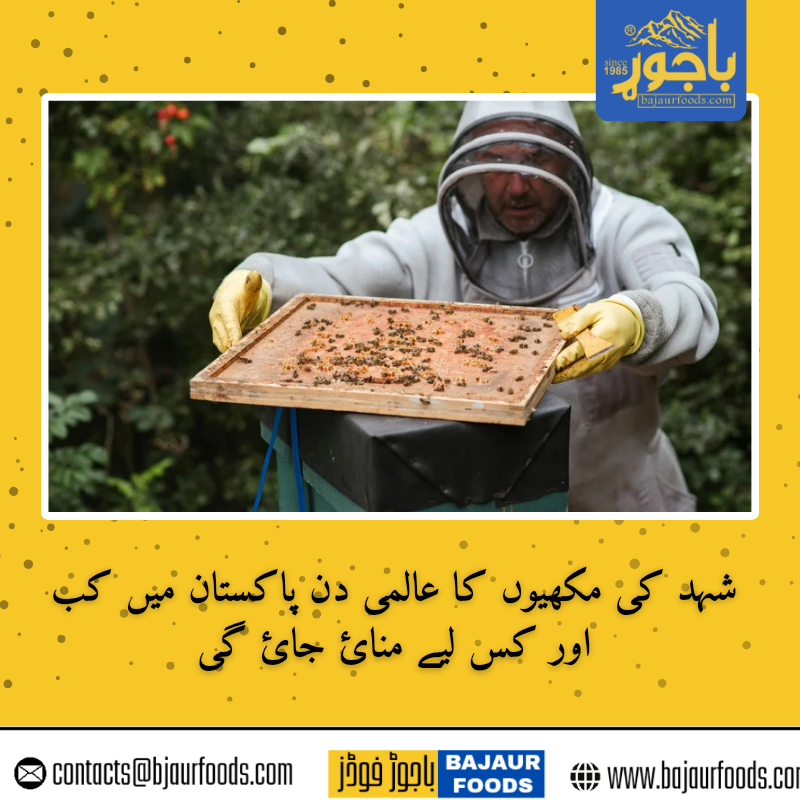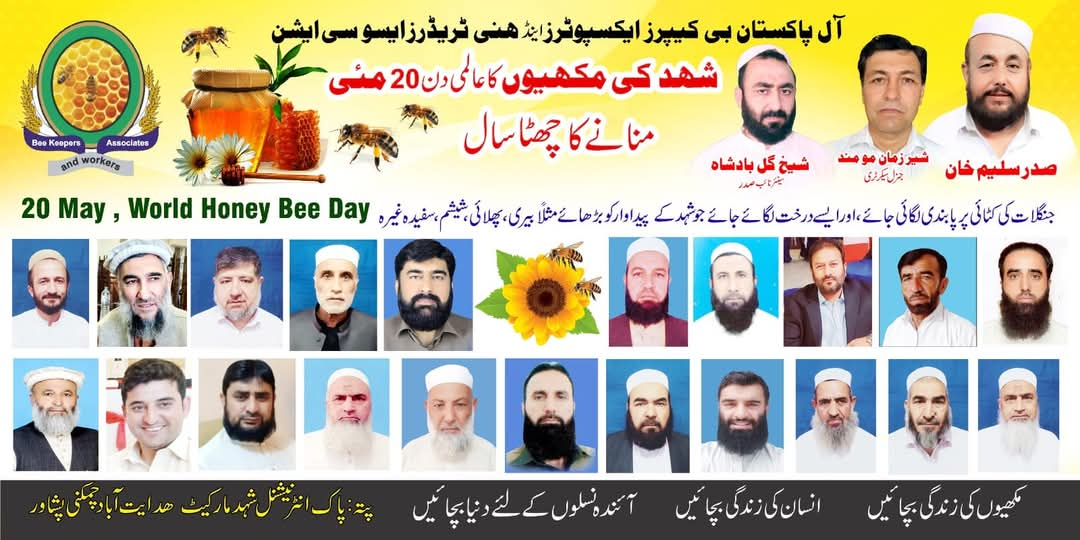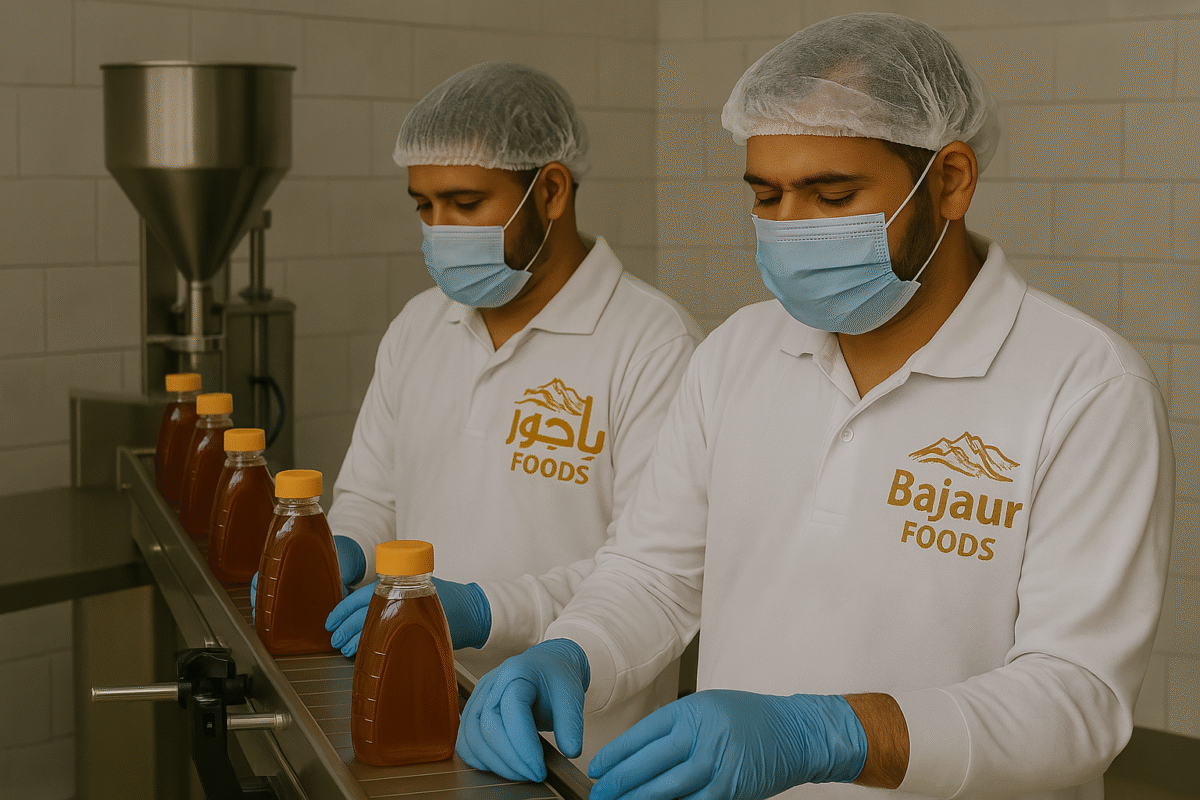
Bees are more than just buzzing insects; they play a crucial role in pollination, food security, and biodiversity conservation. Recognizing their significance, World Bee Day was established to raise awareness about the importance of bees and other pollinators. In this article, we will explore the origins of World Bee Day, why it is celebrated, and the efforts being made globally and in Pakistan to protect these invaluable creatures.
The Birth of World Bee Day
World Bee Day was officially designated by the United Nations in 2017 following a proposal made by Slovenia, a country known for its strong beekeeping traditions. May 20th was chosen as the date for this global celebration to honor the birthday of Anton Janša, a pioneer of modern beekeeping and a symbol of Slovenian apiculture.

In Pakistan, World Bee Day was first celebrated in 2017 by the All Pakistan Beekeepers, Exporters, and Honey Traders Association. The event marked a significant milestone in the country’s beekeeping industry, bringing together experts, traders, and enthusiasts to highlight the importance of bees in agriculture, honey production, and biodiversity preservation.

Why World Bee Day is Celebrated
World Bee Day serves as a global reminder of the vital role of bees in maintaining ecosystem balance, supporting global food production, and ensuring the sustainability of agriculture. The day also encourages governments, organizations, and individuals to take action in protecting pollinators from threats such as habitat destruction, pesticide exposure, and climate change.
The Importance of Bees and Pollinators
1. Pollination and Food Security
Bees are key pollinators responsible for the reproduction of flowering plants, including numerous crops that constitute a significant part of our diet. Without bees, many fruits, vegetables, and nuts would be in short supply, affecting global food security.

2. Biodiversity Preservation
Bees contribute to the maintenance and diversity of plant species, ensuring the survival of various ecosystems and supporting the habitats of countless other organisms.
Threats to Bee Populations
1. Habitat Loss
The destruction and fragmentation of natural habitats due to urbanization, deforestation, and industrial agriculture have a severe impact on bee populations, limiting their foraging opportunities and nesting sites.
2. Pesticides and Chemicals
The use of pesticides and other agrochemicals poses a significant threat to bees. These substances can impair their navigation, weaken their immune systems, and lead to colony collapse disorder.
3. Climate Change
Changes in weather patterns and the loss of floral resources due to climate change affect the availability of food sources for bees, disrupting their life cycles.
Efforts to Protect Bees in Pakistan
1. Sustainable Farming Practices
Promoting organic and agroecological farming methods that reduce or eliminate pesticide use and provide diverse habitats for bees.
2. Bee-Friendly Gardens
Encouraging individuals to create bee-friendly gardens by planting native flowering plants that provide a continuous source of nectar and pollen throughout the seasons.
3. Beekeeping and Education
Supporting beekeepers and providing education about the importance of bees, beekeeping techniques, and pollinator conservation.
4. Policy and Legislation
Advocating for policies that protect bees and their habitats, as well as stricter regulations on the use of harmful pesticides.
Bajaur Foods’ Commitment to World Bee Day
Bajaur Foods proudly celebrates World Bee Day every year, recognizing the vital role of bees in honey production and environmental sustainability. As one of the leading honey brands in Pakistan, Bajaur Foods is committed to supporting high-quality Sidr honey production, promoting sustainable beekeeping practices, and raising awareness about bee conservation.


